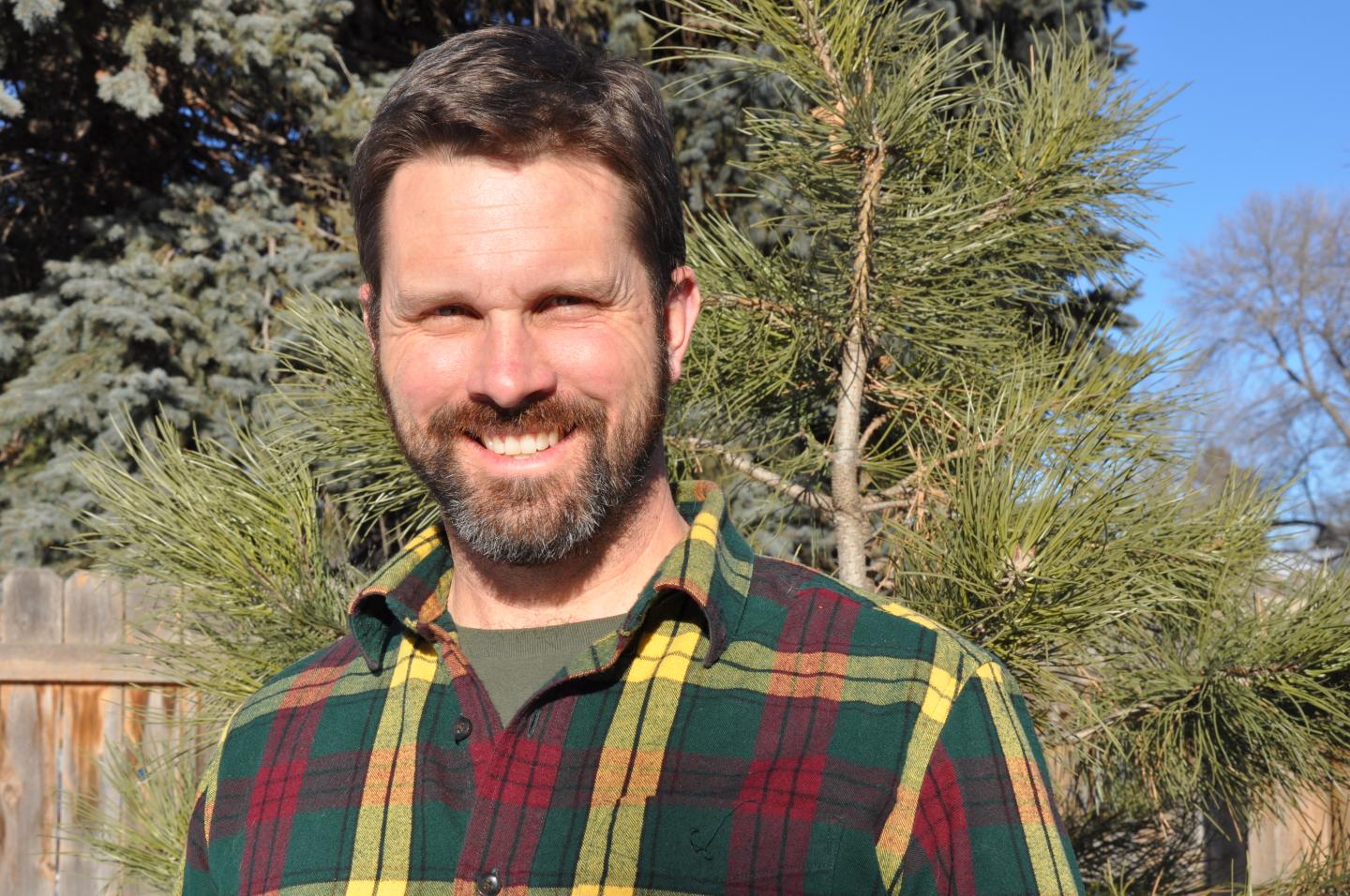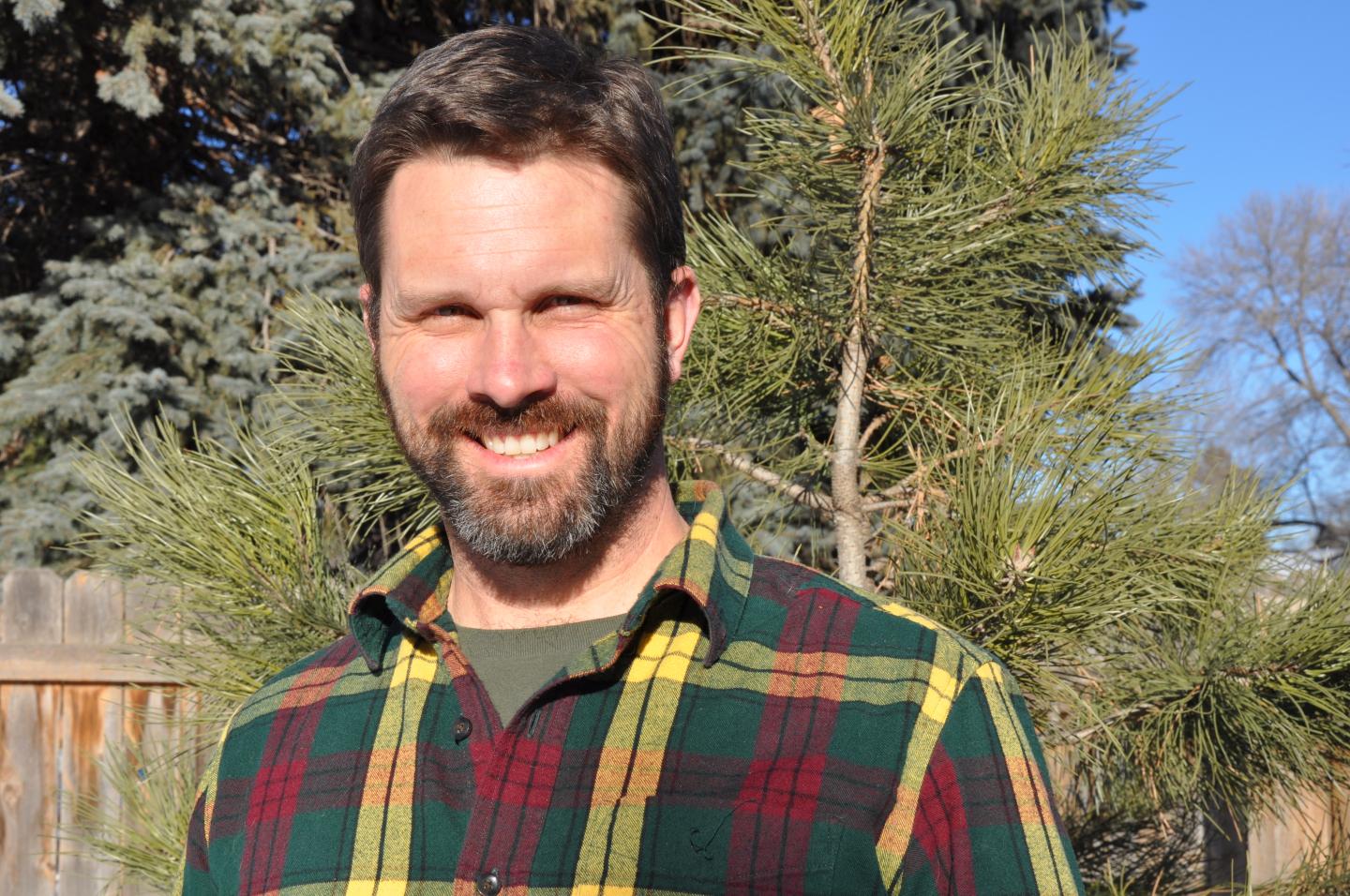
Credit: Photo courtesy of W. Chris Funk
A team led by Josh Tewksbury, director of the Colorado Global Hub of Future Earth, and W. Chris Funk, director of the Global Biodiversity Center at Colorado State University's School of Global Environmental Sustainability, recently received a $2 million grant from the Gordon and Betty Moore Foundation to fund sustainability science projects.
The increasing prominence of sustainability science stems from a realization that many of the most pressing global problems facing society are complex mixtures of economic, societal and environmental issues, and that solving such problems will require collaboration among researchers from many different scientific disciplines.
"The issues are not something that one person can solve," said Funk, an associate professor in CSU's Department of Biology. "What's really important is to bring together people from natural sciences like biology and chemistry with sociologists, anthropologists, and economists."
The award will support fundamental advances in sustainability science through Future Earth. The program is focused on three broad themes:
- Integration of water, energy and food issues
- Predicting and adapting to rapid changes in ecosystems, and
- Sustainable management of ocean resources.
The Colorado hub of Future Earth, a global organization that supports sustainability science, is managed jointly by CSU and the University of Colorado Boulder. Its awards program will bring researchers together from different disciplines and locations, managed by Craig Starger, research liaison officer based at CSU.
Tewksbury, an ecologist and conservation biologist by training, sees sustainability science as an integrative community. "There's a recognition that we need to support researchers who are bound together by their desire to work collectively to create innovative knowledge that's useful to society," he explained.
These researchers recognize that many of the most difficult sustainability challenges need to be tackled in an interdisciplinary way.
"We haven't spent a lot of time as scientists thinking deeply about our societal relevance," Tewksbury said. "But the rapid global changes we're experiencing have increased the need for science that can reach out into other sectors of society more rapidly and effectively than it has in the past."
Funk said the initiative will address things like how to put a value on biodiversity, and how the related assets are being affected by climate change.
"Biodiversity is essential for our food, clean water, air, and everything we rely on as humans," he said. "But a lot of the value, we don't quantify."
Funk envisions bringing together a team that includes biodiversity scientists, sociologists, and others to measure and predict changes in ecosystem services.
An additional area that needs to be addressed is ecosystem monitoring. "We know that our ocean systems are being impacted heavily by over-fishing, climate change and pollution," Funk said. The funding initiative could support a group of oceanographers, fishing scientists, and modelers to better predict shifts in ocean systems that support fish stocks.
Science has typically existed to promote the economic prowess of nations. But Tewksbury said sustainability science is meant more to promote the improvement or survival of large parts of the world's species, or species we depend on.
"This is science that will help all nations," he said. "One of the goals of Future Earth and this grant program is to support individuals who want to increase the societal relevance of their work without sacrificing the rigor of their science. This grant program is a key part of making that possible."
###
Media Contact
Mary Guiden
[email protected]
970-491-6892
@ColoStateNews
############
Story Source: Materials provided by Scienmag





